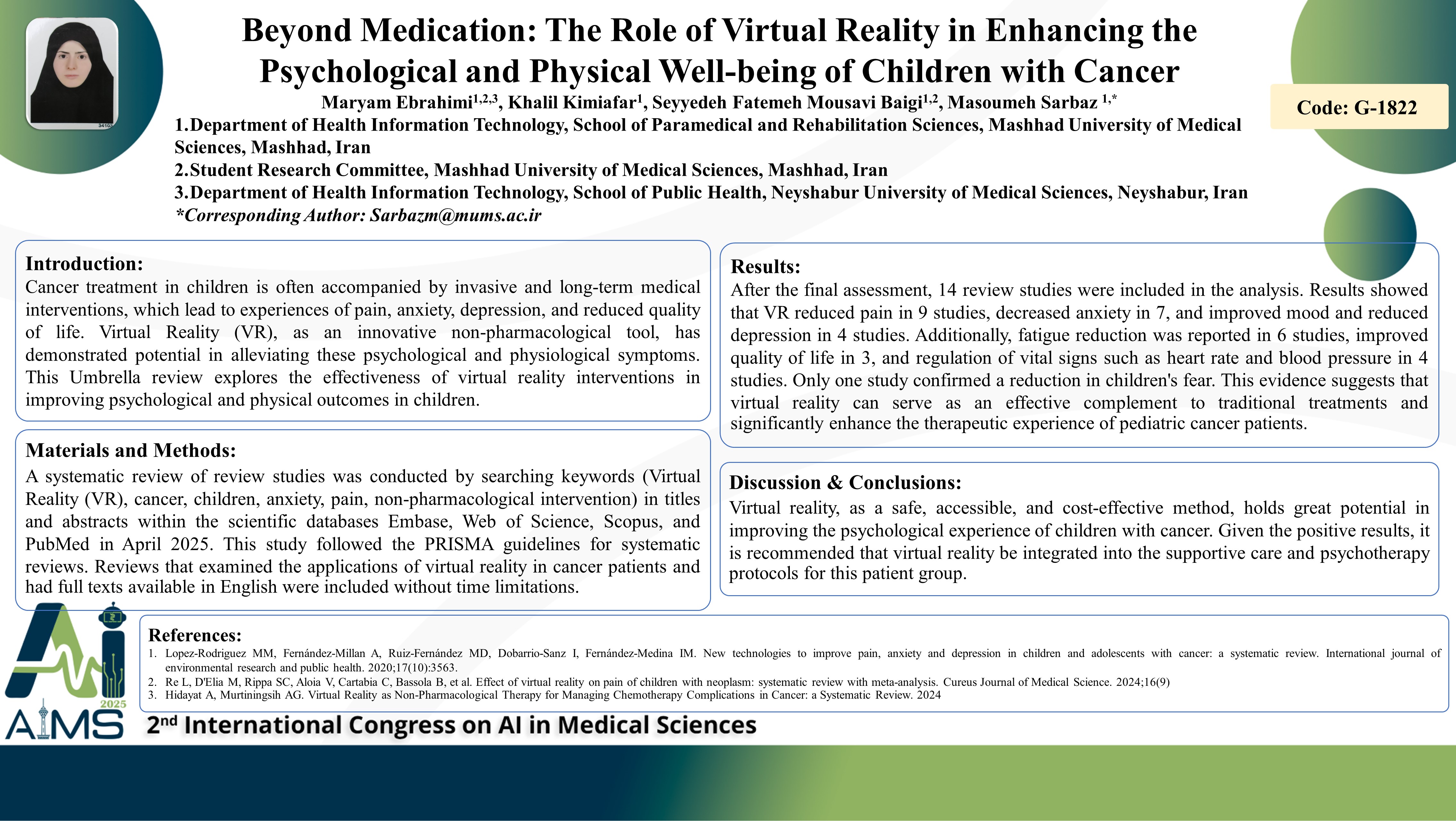Beyond Medication: The Role of Virtual Reality in Enhancing the Psychological and Physical Well-being of Children with Cancer
Code: G-1822
Authors: Maryam Ebrahimi ℗, Khalil Kimiafar, Seyyedeh Fatemeh Mousavi Baigi , Masoumeh Sarbaz *
Schedule: Not Scheduled!
Tag: AR & VR in Medicine
Download: Download Poster
Abstract:
Abstract
Background: Cancer treatment in children is often accompanied by invasive and long-term medical interventions, which lead to experiences of pain, anxiety, depression, and reduced quality of life. Virtual Reality (VR), as an innovative non-pharmacological tool, has demonstrated potential in alleviating these psychological and physiological symptoms. This Umbrella review explores the effectiveness of virtual reality interventions in improving psychological and physical outcomes in children. Methods: A systematic review of review studies was conducted by searching keywords (Virtual Reality (VR), Neoplasm, children, anxiety, pain, non-pharmacological intervention) in titles and abstracts within the scientific databases Embase, Web of Science, Scopus, and PubMed in April 2025. This study followed the PRISMA guidelines for systematic reviews. Reviews that examined the applications of virtual reality in cancer patients and had full texts available in English were included without time limitations. Results: After the final assessment, 14 review studies were included in the analysis. Results showed that VR reduced pain in 9 studies, decreased anxiety in 7, and improved mood and reduced depression in 4 studies. Additionally, fatigue reduction was reported in 6 studies, improved quality of life in 3, and regulation of vital signs such as heart rate and blood pressure in 4 studies. Only one study confirmed a reduction in children's fear. This evidence suggests that virtual reality can serve as an effective complement to traditional treatments and significantly enhance the therapeutic experience of pediatric cancer patients. Conclusion: Virtual reality, as a safe, accessible, and cost-effective method, holds great potential in improving the psychological experience of children with cancer. Given the positive results, it is recommended that virtual reality be integrated into the supportive care and psychotherapy protocols for this patient group.
Keywords
Virtual Reality, Non, Pharmacological Intervention, Neoplasm
